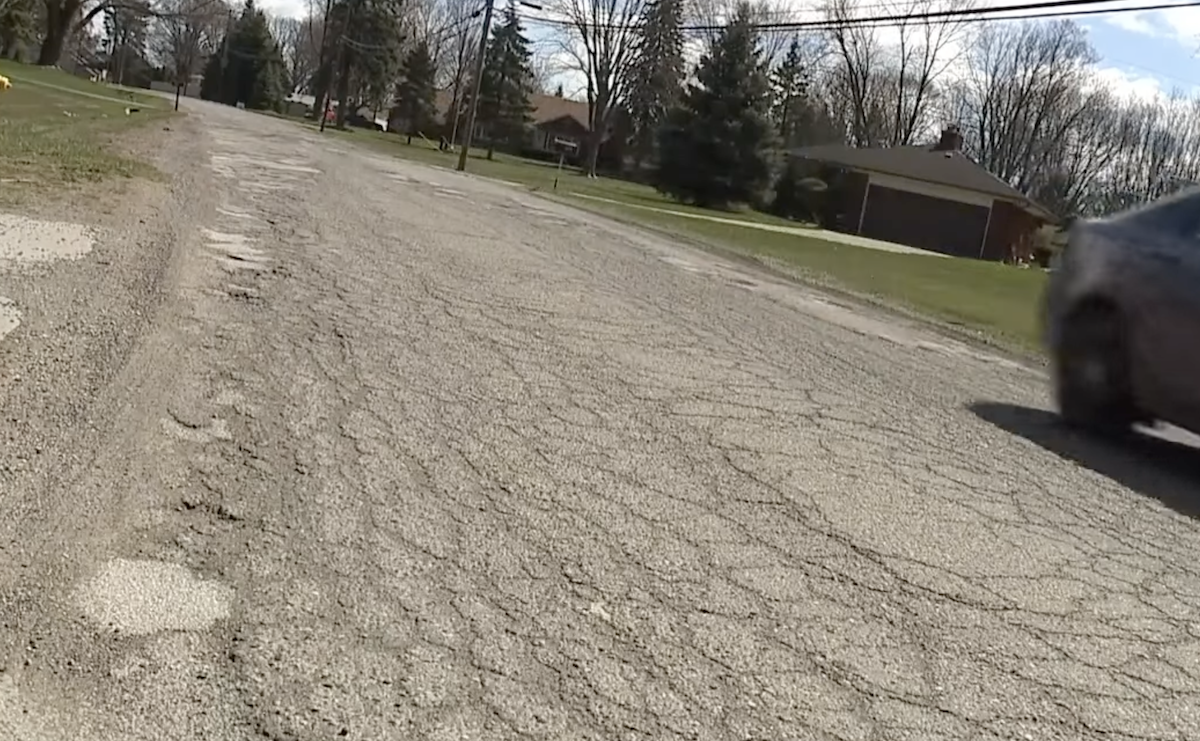Potholes in the Detroit area are causing headaches for the people who live there, including truck drivers.
Residents in Clinton Township, Michigan just outside of Detroit say that the potholes in the Detroit area are so bad, they’ve been damaging vehicles. The poor roads are also causing safety issues, because drivers are paying more attention to avoiding potholes than oncoming traffic.
“I’ve come through here with, of course, a box truck as well as a semi, and I got to tell ya, I’ve actually blown a tire on an 18-wheeler,” he said to 7ABC. “I’ve had a lot of days watching other people try to avoid potholes, almost hit other people because they’re more worried about hitting a deep hole in the road than they are hitting another car.”
Resident truck drivers aren’t the only people who have noticed the severely deteriorating condition of the roads, local leaders say it’s been a challenge to obtain funding for road repair due to outdated financial formulas. These vintage formulas prioritize road funding for main roads in Michigan, but does not allocate much to residential streets.
“That formula is called Public Act 51 of 1951. It has not substantially changed since 1951,” said Township Supervisor Paul Gieleghem. “We have 203 miles of subdivision streets in Clinton Township — 122 of them are currently ranked ‘poor’ to ‘failed.”
Gieleghem says that the only way to fix potholes in the Detroit area is for residents to lobby their legislators for solutions to the ongoing problem.
“This is about engaging the residents to make sure that the state is making that commitment to local roads, particularly in southeast Michigan,” Gieleghem said. “It’s a severe and intractable issue, and one that we need help to be able to fix.”
To make it easier for residents to get involved in the process of fixing potholes in the Detroit area, Clinton Township has created a letter template that people can send to state legislators, asking for a solution to the poor road conditions. The Township is also hosting a forum dubbed “Driving Change,” on April 30th, which is intended to inspire residents to advocate for more solutions.






